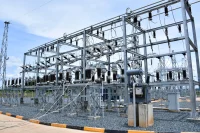Kenyan manufacturers have been urged to embrace and adopt emerging technologies during this COVID- 19 Pandemic era that will allow them to remain in business and sustainable for the future.
SYSPRO Africa Head of Solutions Engineering Deirdre Fryer says, a research conducted last year (2019) on the state of manufacturing in Kenya by SYSPRO and Strathmore University found that only 10.3% of manufacturing companies in Kenya are fully automated while the rest are semi-automated or fully manual.
The report indicated a large number of manufacturing organizations in Kenya have yet to embark on their digital journey.
Speaking during a webinar series hosted by SYSPRO to assist Kenyan manufacturers in the digital transformation process Deirdre noted that while many businesses are fuelled by competition and adopting new and disrupted forms of technology, many organizations are still using legacy IT and have shied away from digital transformation.
“For a long time, we have been talking about digital transformation. In some business circles it was not well understood; in others, it was just ignored. But now we are suddenly seeing people and businesses beginning to develop an interest in digital transformation. It has now become a re-ignited topic, one that people are paying attention to and want to explore.” noted Ms. Deirdre.
Ms. Deidre explained that digital transformation essentially involves a fundamental change in how an enterprise uses its technology, its workforce and business processes to improve its performance and value to customers.
“It is important to understand that the digital transformation journey is not a vertical process but a horizontal process meaning its implementation shouldn’t be left to only one department or an individual in a company, it is a process that involves multiple departments and multiple people. Successful digital transformation only happens when there is a coordinated change effort through all aspects of the business,” she said.
While businesses can gain massive value opportunities in these areas, companies undertaking these efforts quickly learn that the technology in digital transformation is often the easiest part of change. Development gains from digital transformation are not automatic and can result in new divides and widen inequalities.
SYSPRO notes ICT adoption has been identified as a key factor that can increase competitiveness for Kenyan businesses. However for this to happen, there is need to have human resources with the knowledge and skill to implement the relevant technologies, financial resources to purchase these technologies and access to the latest technology locally.
Companies need skilled technical expertise within the company and in the external ecosystem where these technologies are purchased in order to have tailor-made, affordable solutions with local support.
Under the Big 4 Agenda, manufacturing is a priority sector for the Kenyan government. It currently contributes 9.6% of the GDP while the goal is to get it to contribute 20% of the GDP by 2022. ICT is seen as among key factors that will play a major role in the success of this goal.
Automation of manufacturing processes influences the production, quality of products and in turn affects the competitiveness of products in the market. There is therefore an urgent need to intervene in this sector as SMEs form the backbone of the Kenyan economy.
Image source: dubaisims.com













Leave a comment